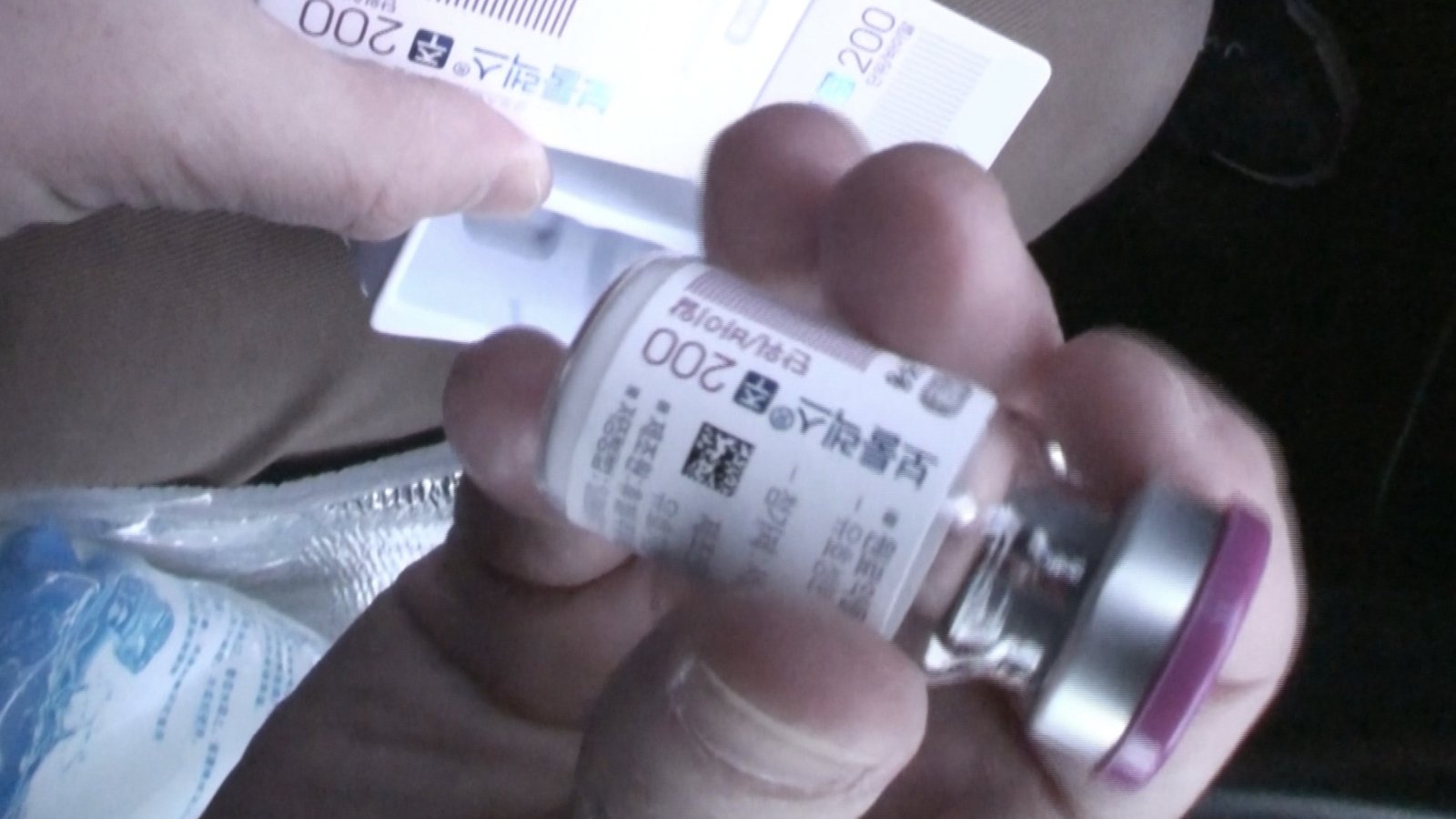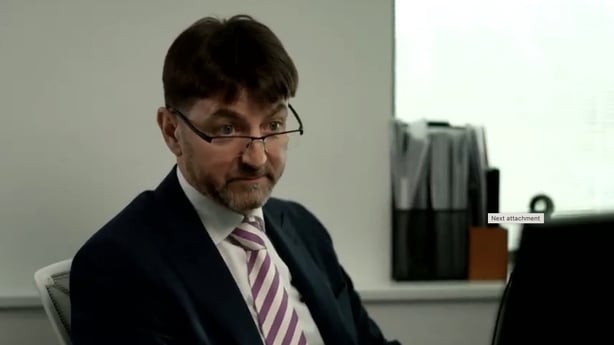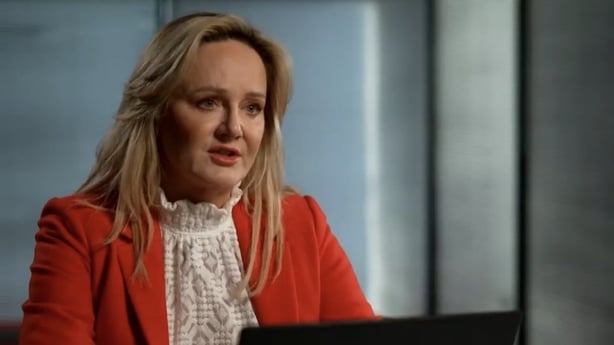RTÉ footage raises ‘huge’ issue around botox-type treatments

The President of the Irish Association of Plastic Surgeons has warned of a risk to members of the public and said he is “shocked” and “stunned” after viewing undercover footage of the activities of some people working in the beauty industry in Ireland.
During a six-month investigation, RTÉ Investigates found individuals and businesses handling, selling, and prepared to inject botox-type products illegally. Many used unlicensed products, often imported from South Korea.
Professor Jack Kelly, President of the Irish Association of Plastic Surgeons, was shown elements of the footage, and said the investigation exposes “a huge gap in patient safety.”
“It is eye opening and shocking in equal measure. I have to say I am stunned, and I think most of my colleagues in plastic surgery will be stunned at what is going on,” he said.
“These people are creating problems for unsuspecting patients. They are actually misrepresenting themselves, their qualifications, and their abilities, and they are bringing in dubious products for use on unsuspecting patients here in Ireland.”
“It is unbelievable that this is continuing. We cannot allow the unsuspecting public and patients in Ireland to be treated like this. It is absolutely appalling,” he added.

‘Botox’ is a trademarked brand name but is now such a popular product worldwide that the word has become a catch-all term for products containing botulinum toxin. Botox itself is licensed for use in Ireland, however a number of the botox-type products discovered during the RTÉ investigation were not licensed for use here.
In one instance uncovered by RTÉ Investigates, a person was identified flying into the country one week per month to provide botox-type injections to clients in the Midlands.
Botulinum toxin by law can only be administered by a doctor or dentist. Regulations also allow registered nurses in certain circumstances to administer it, however that must be done under the direction of doctor or dentist. The person travelling into the country regularly met none of those legal requirements.
When asked by an undercover researcher what their aftercare plan would be if the researcher’s facial muscles drooped following the injection, she said her advice would be to put a warm towel on the problematic area, wait a couple of days and “it might go up by itself.”
In another case, RTÉ Investigates secretly filmed a person offering to administer botox from their bedroom without basic sterilisation being done. The person was willing to inject someone barely out of their teens.
Separately, when a researcher posing as a salon-owner enquired about purchasing botulinum toxin from another woman working in the beauty industry, she agreed and advised on how to avoid detection by the authorities.
“What we do [is] we take all the labels of,” the individual said.
Read more: Exposed: My journey into Ireland’s underground botox supply chain
Anyone selling such products in their bottled form is required to hold a wholesaler’s authorisation from the Health Products Regulatory Authority.
However, undercover researchers also filmed with, and received products from, a UK-based supplier who said he regularly transported large amounts of unlicenced Korean products to people working in the beauty industry across the Republic of Ireland.
He moves the products to a location in the border region, where it is collected by people working in the industry in the Republic of Ireland.
“I have girls who drive from Clare, from Limerick, from Cork,” the UK-based supplier told our researcher.
On seeing it, Dr Eithne Brenner – one of a group of 60-plus doctors calling for regulation of beauty the industry – said she was “really shocked.”
“This is a prescription-only medicine, it really isn’t safe medical practise,” she added.
“It makes me so sad,” said Dr Sana Askary, “It makes me think, like, ‘God, if that was a relative of mine, getting that injected into their system,’ it’s just not right.”

The regulator charged with overseeing the trade and administration of botox-type products, the Health Products Regulatory Authority (HPRA) declined to be interviewed in relation to the report.
It provided a written statement to RTÉ Investigates.
“In the past decade… [the HPRA has] taken four successful prosecutions for breaches of legislation pertaining to the administering, distributing, selling or advertising of prescription medicines containing botulinum toxin,” the statement said.
Since 2022, it added, “the HPRA has instructed 135 clinics advertising botulinum toxin online to remove unlawful content.”
The RTÉ Investigates report examines activities related to the beauty industry and is not specific to botox-type products alone.
Unlike botox, there are currently no regulations in place as to who can inject dermal filler, a popular cosmetic product offered legally by many non-medical providers.
It was hoped that the enacting of the Patient Safety Licensing Bill 2016 would provide patient safety regulations for the use of dermal filler, however eight years after its introduction it has not yet been enacted.
The Department of Health has told RTÉ Investigates that it “continues to work on the Patient Safety (Licensing) Bill which will, for the first time, introduce a licensing requirement for all acute hospitals, public and private, and certain designated high-risk activities in the community.”
The HPRA further added that “RTÉ’s research, and the HPRA’s related and ongoing enforcement activities, reflect a growing trend where certain individuals offering aesthetic services may be operating outside the law by providing prescription medicines without a prescription. In such cases, they aim to take commercial advantage of consumers. Their primary concern is financial gain – not the health of consumers availing of these services.”
Kathy Maher, former president of the Irish Pharmacy Union, also saw the undercover footage. She said it indicated to her that oversight of the industry needs increase.
“I wouldn’t have anticipated things to be at this level, absolutely not,” she said.
“These are injectables. I am shocked that even end users are prepared to use this, not knowing where it has come from. So, we need to look at enforcement.”
‘RTÉ Investigates: Botox & Beauty at Any Cost’ broadcasts on Monday at 9.35pm on RTÉ One




